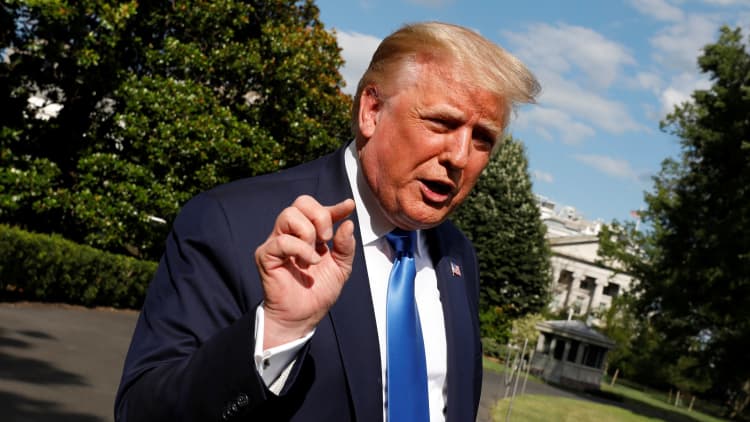Attorney General William Barr may have had secret information that led the Justice Department to seek to drop its criminal case against Michael Flynn, a government lawyer said Tuesday.
Jeffrey Wall, the acting U.S. solicitor general, revealed the possible existence of that nonpublic information during a full appeals court hearing over whether Flynn's case in federal court should be dismissed, as the Department of Justice has requested.
Several judges among the 10 who heard the oral arguments signaled they would likely allow a lower court to rule on whether to drop the criminal charge against Flynn.
The DOJ had provided multiple reasons for U.S. District Court Judge Emmet Sullivan to throw out its own case against Flynn, who had previously pleaded guilty to lying to the FBI about his contacts with the Russian ambassador to the U.S. in the weeks before Trump's inauguration.
But Wall, who was representing the DOJ, told a full panel of judges on the appeals court in Washington, D.C., that Barr's judgment on Flynn's case came "in the context of nonpublic information from other investigations."
"I just wanted to make clear that it may be possible that the attorney general had before him information that he was not able to share with the court," Wall said, "and so what we put in front of the court were the reasons that we could, but it may not be the whole picture available to the executive branch."
Rather than promptly grant the DOJ's request to drop the charge against Flynn, Sullivan had appointed a former judge to make arguments for the position that the case should not be tossed. Sullivan also allowed other outside parties to weigh in on the question.

In response, Flynn's lawyers asked the appeals court to force Sullivan to grant the request to dismiss the case. A three-judge panel had ruled in favor of Flynn, but the full court later agreed to rehear the case in response to a request from Sullivan's lawyers.
In the hearing Tuesday, Flynn's lawyer, Sidney Powell, said that Sullivan has "discarded any semblance of the unbiased impartial adjudicator" he is expected to be.
Powell also said that Sullivan has the "now-glaring appearance of bias" for millions of Americans.
But Powell faced a highly skeptical-sounding group of appeals judges that aggressively questioned her argument that Sullivan had little power to do anything other than grant the Justice Department's request to drop its prosecution of Flynn.
"The judge has to do some thinking about it, right? The judge is not simply a rubber stamp," one of the judges asked Powell.
Beth Wilkinson, a lawyer for Sullivan, argued that he would follow the law as he pursued answers to his lingering questions before ruling on the request to dismiss Flynn's case. She also noted that if Sullivan had been allowed to proceed with Flynn's case as he intended, the proceedings may have ended much earlier.
"This matter could have been over on July 16, ironically, if the judge had been able to have his hearing," Wilkinson said.



